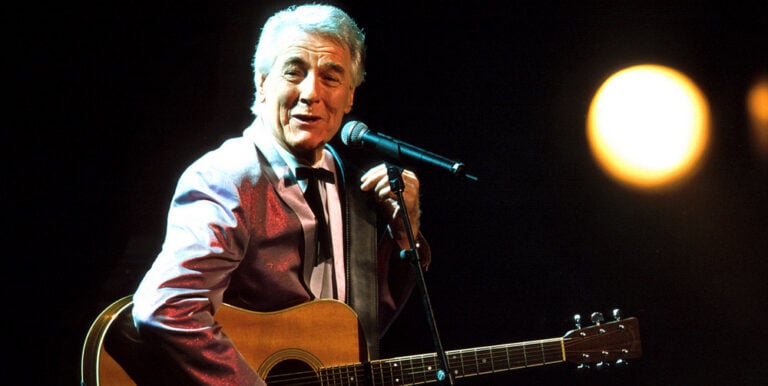Col Joye, the music pioneer who was the first Australian pop star to hit No. 1, and who signed The Bee Gees to his own record label, died Tuesday, August 5th at the age of 89.
Born Colin Jacobsen, Joye enjoyed national success in his homeland in the early days of rock ‘n’ roll with his band the Joy Boys.
He started his music career with his brother Kevin Jacobsen’s group, the KJ Quintet, back in 1957.
For a gig at the Manly Jazzerama they impulsively changed their name to Col Joye and the Joy Boys, a decision they are said to have regretted. Joined by younger brother Keith on bass, the Joy Boys began performing regularly in Bankstown.
Their first record was the 1958 EP Joyride. Bigger hits would come, none greater than the 1959 single “Bye Bye Baby”, which went to No. 1 on the Sydney charts. Three further top ten hits followed, and the band became regulars on Bandstand and Six O’Clock Rock.
Love Music?
Get your daily dose of metal, rock, indie, pop, and everything else in between.
Decades later, Joye would appear on RockWiz, performing “Bye Bye Baby” to new audiences.

The Jacobsen brothers flipped the script in the 1960s by setting up Joye Enterprises, Joye Music and the ATA label and talent agency. And with their sister Carol, they had success as concert promoters.
The family business, Jacobsen Entertainment, continued into the 2000s, and was the subject of an episode of the ABC’s Australian Story.
Joye was early on the scene for one of music’s greatest acts, The Bee Gees, who he spotted in Surfers Paradise in 1961. He promptly signed the Gibb brothers to Joye Music, and welcomed the Bee Gees as backing vocalists for his 1963 single “Starlight of Love”.
Another highlight came came in 1973, with the single “Heaven is my Woman’s Love,” a national chart leader.
In 1981, he was appointed a Member of the Order of Australia (AM) for his entertainment and philanthropic work.
His lofty standing in the Australian music community was confirmed when, in 1988, he was a member of the first class of the ARIA Hall of Fame, inducted alongside Dame Joan Sutherland, Johnny O’Keefe, Slim Dusty, Vanda & Young and AC/DC.
In the same year, Australia Post issued a special edition set of twelve stamps celebrating the early years of rock ‘n’ roll Down Under. One of those stamps saluted Joye, based on the song “Oh Yeah Uh Huh”.
In the early 2000s, Joye joined the “Long Way to the Top” live concert tour, performing alongside some of the all-time greats, and his presence is preserved at the National Film and Sound Archive, for which he donated over 1,200 items.
ARIA paid tribute to a pioneer whose talent shone on both the artist and industry side. “From music to TV, publishing to concert promotion, artist management and live performances, Col Joye made a remarkable contribution to Australian music for more than six decades,” comments ARIA CEO Annabelle Herd.
“At a time when the local industry was dominated by US and UK artists, he proved that Australians would embrace local artists and local music. Our deepest condolences go to Col’s family. He will be sadly missed.”

































